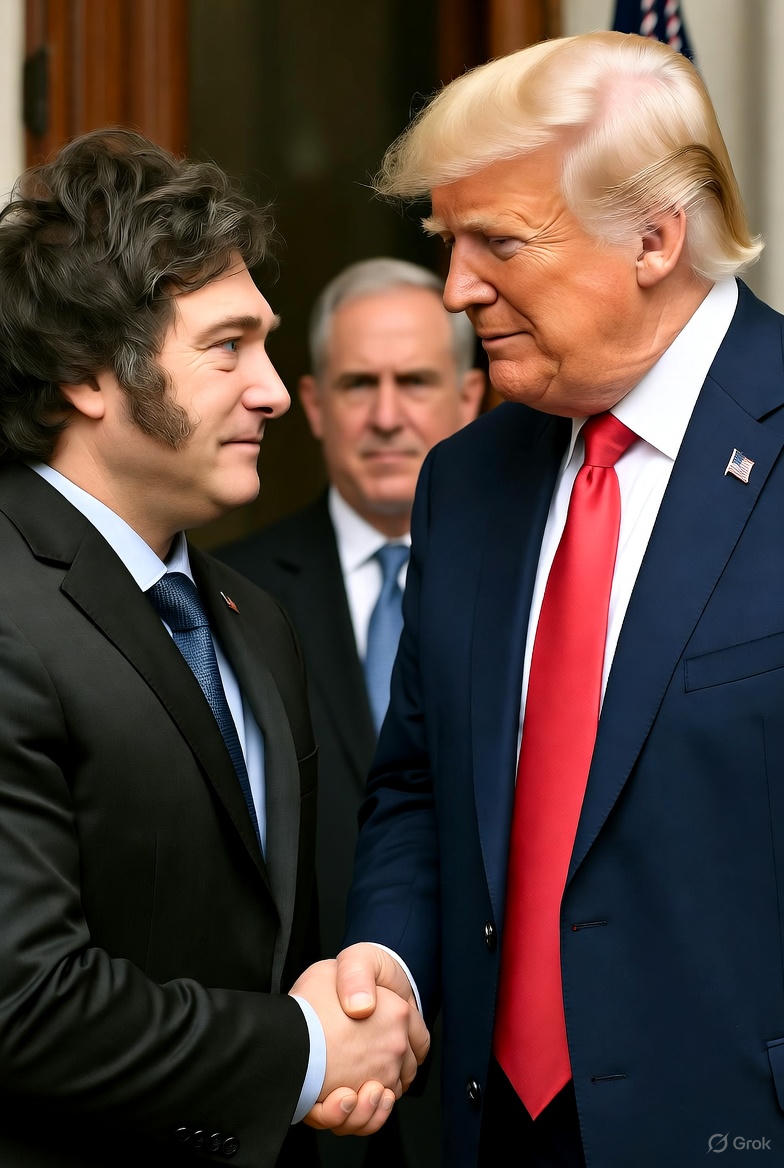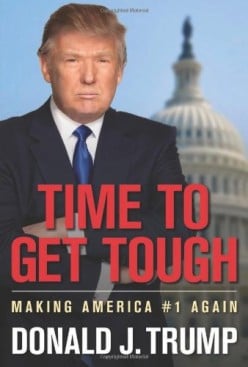Stability, Strategy, and Strength: Inside the U.S.–Argentina Economic
The U.S.–Argentina Deal: What It Is and Why It Matters

NOTE --- Donald Trump has expressed full support for Argentine President Javier Milei and tied the continuation and expansion of the $20 billion arrangement to Milei staying in power. In Trump’s own words (reported by Financial Times and Politico), “If Milei loses, there’s no deal.”
I’ll begin by explaining exactly what the deal is, step by step, based on public statements and reports. Then I will discuss why it can reasonably be considered a good deal, and finally show how the U.S. stands to gain from it.
The Deal: What It Is, How It Works
I understand the centerpiece of the deal is a $20 billion currency swap / liquidity support agreement between the U.S. (via its Treasury) and Argentina.
Here’s how it works in practice:
Currency Swap / Purchase of Pesos
The U.S. Treasury will allow Argentina to exchange up to $20 billion worth of Argentine pesos for U.S. dollars.
In doing so, the U.S. has already directly purchased Argentine pesos, injecting dollar liquidity into Argentina’s depleted foreign currency reserves.
The mechanism is akin to a credit line or emergency liquidity line: Argentina gets dollar support in exchange for peso holdings.
Conditionality / Political Alignment
The deal is explicitly tied to Argentina continuing on a free-market, austerity, or reform agenda consistent with the governing coalition’s philosophy.
Trump and his Treasury assert that if the political direction in Argentina reverses, U.S. support would be reconsidered.
The deal is framed as not just economic assistance but also a reinforcement of political and ideological alignment between the two nations.
Objective: Stabilize Argentina’s Financial System
The stated goal is to stabilize the Argentine peso, prevent capital runs or further reserve collapse, and restore confidence in Argentine financial markets.
This comes at a moment of acute financial stress in Argentina: the peso has been under severe devaluation pressure, and foreign reserves have been drained.
Broader Negotiations and Possible Trade Links
Alongside the currency support, Trump has hinted that a free trade agreement or tariff adjustments between the U.S. and Argentina could be part of the overall economic partnership.
Talks are expected to touch on infrastructure, data center projects, investment in technology, and other sectors.
Repayment / Exit Mechanism
The swap is designed to be temporary and reversible: Argentina is expected to repay or reverse the swap, returning dollars to the U.S. Treasury.
The U.S. Treasury makes use of its Exchange Stabilization Fund (ESF)—a special fund authorized for precisely these kinds of foreign exchange interventions.
So, in short: The U.S. is offering Argentina up to $20 billion in dollar liquidity by swapping or purchasing pesos, in order to stabilize Argentina’s economy and currency. The support is tied to continued reformist policies in Argentina, and further cooperation in trade and investment is part of the broader strategic framework.
Why It’s a Good Deal (From a U.S. Perspective)
I believe one can argue this is a strong deal for the U.S. based on a combination of strategic, economic, and political factors:
Strategic Influence in Latin America
Latin America is a region where U.S. influence competes with that of China, Russia, and other global powers. By stepping decisively into Argentina, the U.S. reasserts leadership and influence in the Western Hemisphere.
Supporting a reformist government aligned with U.S. free-market values helps tilt regional politics in a more U.S.-friendly direction.
Stabilizing a Potential Threat to Regional Financial Stability
Argentina’s economic collapse could spill over to neighboring countries, triggering currency contagion or investor flight in Latin America. By intervening early, the U.S. helps forestall a regional financial crisis.
This acts like a prophylactic: it’s cheaper to stabilize one country than to deal with a broader crisis later.
Leverage Over Economic Policy and Trade Terms
Because the support is conditional, the U.S. gains leverage to push for policy reforms, trade liberalization, and investment rules that benefit American access and competitiveness.
The possibility of a U.S.–Argentina free trade framework or tariff reductions gives the U.S. bargaining power.
Return on Investment via Interest, Swap Fees, and Market Gains
The U.S. is not giving away money: it expects repayment (or reversal) of the swap, possibly with fees or interest.
If Argentina’s economy strengthens and investor confidence returns, U.S. financial and business interests (banks, corporations, capital markets) may profit from expanded opportunities there.
Political Benefits & Messaging
Domestically, it sends a message that the U.S. will stand by like-minded governments and uphold free-market governance abroad.
Internationally, it reinforces the narrative that the U.S. is not abandoning Latin America but is proactively reengaging.
Access to Key Resources and Sectors
Argentina is rich in natural resources (lithium, agricultural products, mining, energy). Stronger bilateral ties could secure better U.S. access to these sectors.
Investment in infrastructure, data, and tech (e.g. data centers) offers long-term returns and influence in critical emerging sectors.
Restoring Credibility as a Global Economic Actor
By executing a complex financial support plan outside of multilateral institutions (like the IMF), the U.S. demonstrates it retains economic muscle and agility.
That can increase U.S. credibility in other global financial engagements.
Given these points, I see the deal as a smart marriage of economic support and strategic diplomacy, built with checks (conditionality) to protect U.S. interests.
How the U.S. Will Benefit
Here is how I expect the United States can concretely benefit from this arrangement:
Strengthened diplomatic ties and regional leadership: The U.S. will gain a closer ally in Argentina, reinforcing its influence in South America and countering the sway of rival powers.
Expanded market access: As Argentina stabilizes, U.S. exporters, firms, and investors will have access to an economy with renewed growth potential.
Financial returns: The swap is not a gift; the U.S. expects to be repaid, with possible fees or gains if Argentina succeeds and reenters capital markets.
Reduced systemic risk: By preventing Argentina’s collapse, the U.S. reduces the chance of financial contagion or destabilizing capital flows in emerging markets, which could spill back onto U.S. markets.
Strategic resource access: Deeper involvement may help secure favorable terms in key sectors such as lithium, natural resources, agricultural trade, and energy.
Leverage in shaping policies: Because the support is conditional, the U.S. can influence Argentina’s economic, regulatory, and trade policies in a direction favorable to U.S. firms and investors.
Soft power and narrative advantage: It allows the U.S. to showcase its willingness to use financial strength to support democracies or reformist regimes globally, enhancing prestige.
Does This Use U.S. Taxpayer Money?
This is an important question — and one that deserves a clear answer. No, this deal does not take U.S. taxpayer money. It’s being executed through the Exchange Stabilization Fund (ESF), a Treasury-run financial reserve created in 1934. The ESF operates using its own assets, not annual congressional funding.
When the U.S. Treasury extends dollar liquidity to Argentina through the ESF, it isn’t spending new tax dollars or passing a bill through Congress. The ESF’s funds come from previous earnings and reserve holdings, not from taxpayers.
The structure is also designed to be temporary and repaid. Once Argentina’s financial situation stabilizes, the swap will be reversed and the U.S. will be paid back, often with small fees or interest. The ESF has done similar transactions in the past — such as helping Mexico in 1995 and providing liquidity lines during the 2008 financial crisis — and in each case, taxpayers didn’t lose a cent.
So, to put it simply:
This is not a taxpayer-funded bailout. It’s a carefully structured financial swap using existing Treasury reserves, designed to strengthen U.S. influence and protect both countries’ economic interests.
A few Of My Sources
YouTube press conference regarding possible deal --- https://www.youtube.com/live/hfwxTnKt6iA?t=648s
https://www.foxbusiness.com/politics/tr … trade-deal
https://www.cfr.org/article/will-trumps … s-fortunes
https://www.reuters.com/world/americas/ … 025-10-09/
https://thenationaldesk.com/news/fact-c … ury-mexicoI still think that Trump is in a way using this deal to help this rightwinger president of Argentina win.
All the advantages you say that America receives in return for the investment are highly subjective and I question if there is any objective value. I don’t want a Planet Trump, spreading his ethos all over the place, I see no value in that.
The move is one more of control over another society more than helping them with their economic problems, that is the Trump whose true motives for anything is related to exploitation and self interest and I don’t mean for America’s benefit. I am skeptical of anything that he does or says, unless proven and firmly established by non-Trump controlled sources.
Again, IF Argentina’s economy stabilizes and that is a big IF.
Trump and the administrations objectives for the Argentine bailout are not ones that I would consider as compelling, justifying the expense.
We push Canada away while embracing Argentina?
As for the ESF, here is the rest of the story, Sharlee
Yes, the Exchange Stabilization Fund (ESF) can be linked to public tax money, particularly when losses are incurred on its activities. While the fund is designed to be self-sustaining, taxpayers can be put on the hook in certain situations
Argentina could prove to be just the kind of risk situation that we all may have to bail out. I still think that this all is a boondoggle."All the advantages you say that America receives in return for the investment are highly subjective and I question if there is any objective value. I don’t want a Planet Trump, spreading his ethos all over the place, I see no value in that. " Cred
Cred, there’s always some level of risk with this kind of deal, which I won’t get into here, but it’s there. As for “Planet Trump,” I fully support his approach to spreading democracy and pushing back against socialism. I’ve seen plenty of evidence that socialism simply doesn’t work; it never has. Trump chose to engage with Argentina’s current president, Javier Milei, precisely because he’s running the country as a democracy and steering it away from socialist ruin. If, for some reason, Milei doesn’t win and his socialist opponent takes power, the deal is off. It was socialism, after all, that previously drove Argentina to the brink of insolvency.What happened to America first lol? We all know that if Biden wanted to bring other nations into political "alignment" with ours he would have been excoriated....please..
Flip flop of epic proportions. A lot of posters on this forum would do well to go back and look at what they've posted...My brother lives in Spain, and from his reports the more socialist tack those nations take in Europe seem to meet with their approval. Socialism is an economic system not a political one, there is such a thing as socialist democracy, much of Western Europe subscribes to it. But, I probably would be more accurate in saying less emphasis on capitalism.
Maga is seething.... And yes Maga is different than trumpists.... We have trumpists here
Trump is looking at doubling its Argentina bailout to $40 billion....
This would pay for 2 year extension of the health care tax credits....
I know I know, it's better to prop up a failing Nation...
Argentina first
America lastDoubling the amount of welfare to keep Argentina afloat while not one damn thing has been done to lower the cost of living for Americans
Anyone care to address how this deal benefits the hedge fund manager and Trump bestie Scott Bessent?
Related Discussions
- 263
Why do people in America support authoritarians in 2022?
by Scott Belford 5 months ago
It is a given that politicians like Donald Trump and Ron DeSantis of Florida are authoritarians. In fact, they are wannabe dictators. Many millions of Americans have bought into their unAmerican, anti-democratic message and give full-throated support for their take-over of government...
- 11
Why Trump Loves Tariffs So Much.
by Mike Russo 3 weeks ago
To understand why Trump loves tariffs, we have to go back to the 1970's. In that period we had big cars with big gas guzzling engines and everybody was happy. The price of gasoline was very low and affordable by all and then the OAPEC oil embargo hit.**The 1970s oil embargo was a geopolitical...
- 17
Why President Trump Was Right to Target Iran’s Nuclear Sites
by Sharlee 5 months ago
And Why the World Can't Afford to Keep Guessing at GhostsIran’s Decades of ProvocationIran has spent over four decades cultivating its status as a rogue regime. Since 1979, the Islamic Republic has waged a slow, deliberate campaign of terror, subversion, and bloodshed, fueling proxy wars, funding...
- 18
Covid-19 Relief Bill and Modern Monetary Theory
by ga anderson 4 years ago
I am worried about the latest Covid-19 relief bill. I understand that it is being called the American Rescue bill or something like that, but the worry is the same.$1.9 Trillion! Where are we going to get that money? Does anyone stop to ask that question?I have heard that there is still $60 billion...
- 6
CHIPS Act in Contrast: Biden’s Grants vs. Trump’s Intel Investment
by Sharlee 3 months ago
Biden Administration: Grants and Loans under the CHIPS ActUnder the Biden administration, the CHIPS and Science Act allocated nearly $53 billion to bolster U.S. semiconductor manufacturing, research, and workforce development. Of this, over $36 billion was designated for direct incentives,...
- 3
Trump's Detailed 5 Point Strategy Plan To Make America GREAT!
by Susie Lehto 9 years ago
1. Foreign Interventions Must Require Cost-Sharing Plans to Reduce U.S. Costs and Guarantee Veterans and Their Families Are Protected“Money is itself a weapon,” writes Trump.Before America spends trillions of dollars fighting other nations’ battles, Trump says the U.S. should implement cost-sharing...








